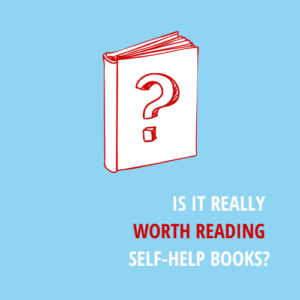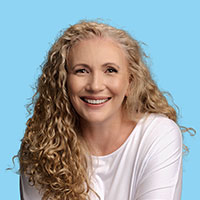‘We are pretty dodgy at being human. We really have very little clue about how we work – we don’t fully understand our emotions, our behaviour, our neurology, our physiology – or how to live with purpose, calmness, contentment and joy, with our loved ones and within ourselves.’
Signposts for Living, Dr Kirsten Hunter
You know, even though I’m a Clinical Psychologist, I’m not going to preach at you and tell you to read self help books. The truth is, they’re not for everyone. But if you are a reader, or you like listening to audiobooks, and if you are curious to understand yourself and your people around you, than yes, self help books can probably launch you forward in your life.
I personally wrote my 6 book psychology series, SIGNPOSTS FOR LIVING, as a result of clinical conversations with thousands of people over the last twenty-two years of clinical psychology work. This works out to be approximately 42,000 hours of conversations with clients of all shapes and sizes and from all walks of life, all struggling during their various stages in life. So basically, what I’m saying is that if you read self help books from well qualified and experienced Clinical Psychologists, than you benefit from all those who have gone before you. When a skilled Clinical Psychologist has the same conversation that many times, they a see the paths to progress, they see which convesations are worth having. And this is the information conveniently packaged for you in their self help book.
Quick Tips
- Of course… make sure the author is qualified and experienced.
- Make sure the content is relatable and not overly dry or academic. You need a friendly conversation from the author so that you can relax and absorb the valuable information being shared.
- Decide, do you want a book / series of books, that canvas a whole lot of psychology areas (like SIGNPOSTS FOR LIVING), or do you want to focus in on one specific area of psychology?
- Prepare to be challenged. This is the essence of psychology, holding up a mirror and learning about ourselves, learning to take responsibility for ourselves while also having compassion for ourselves (and others). Most of all, psychology is about becoming extremely skilled in your capacity to deal with your thoughts, your emotions and your behaviour. This than increases your ability to have healthy interactions with the world and your people.
If you get a new puppy, it is wise to put in the time to train it; you can enjoy your pup so much more once it’s trained. Your pup becomes easy and fun to walk, reliable on your carpets, and an enjoyable character. This is strangely true for us too. By studying our thinking, emotions, behaviour and styles of relating to others – really getting a solid level of self-awareness and having a robust skillset – we can enjoy ourselves and our world so much more. And no, we do not need to be puppies to learn new tricks; ‘old dogs can learn new tricks’, at any stage of life. So no excuses!
The real question is why we don’t routinely learn how to tackle ‘how to be human’ at school, when we are young? Not learning these basic psychology life skills has left us as a global population feeling insecure, disconnected and unsafe.
The knowledge of psychology is not common sense, and it is not common knowledge, yet it should be. It needs to be. So do self-help books help us? Absolutely. The question is, do you want to launch, or do you want to stay where you are?
Wish you well, take care.



Subscribe To Our Newsletter
Join our mailing list to receive Psych wisdom, advice and encouragement once a month.
"The Skills we need are not just common sense, we need to learn them from somewhere"
You have Successfully Subscribed!